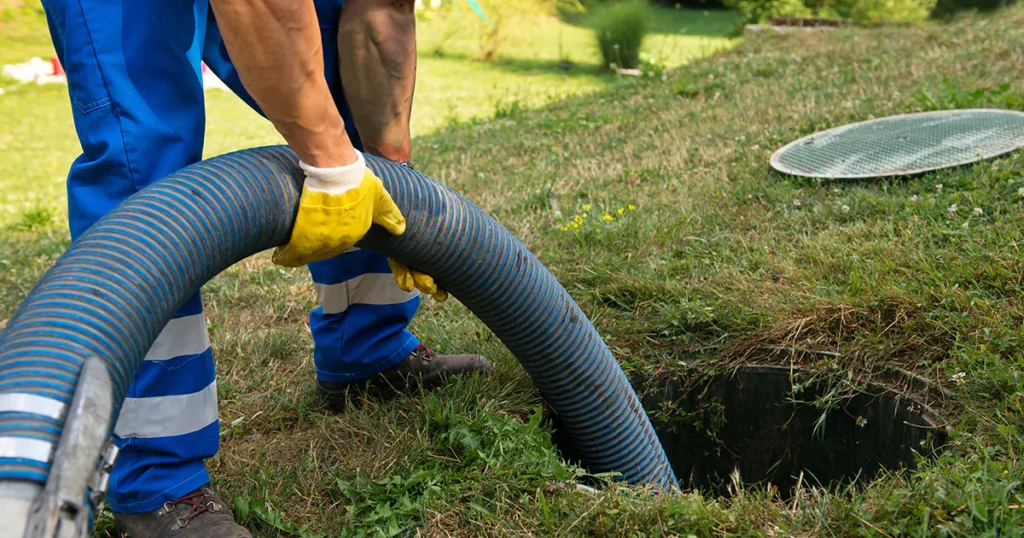When it comes to maintaining your home’s wastewater system, understanding the difference between a septic tank and sewer system is crucial. Both systems handle waste differently and require different types of maintenance. In this article, we’ll explore how you can determine what system you have, the importance of septic tank pumping, frequency recommendations, associated costs, and the benefits of regular maintenance.
Septic Tank vs. Sewer System
What is the difference between a septic tank and a sewer?
A septic tank is an onsite sewage facility common in areas without connected sewage government or private company systems. It’s a self-contained unit that collects, treats, and disposes of household wastewater. The tank separates solids from liquids, digests organic matter, and the effluent is then discharged into a drain field for further natural filtration.
The sewer system, on the other hand, transports wastewater from your home to a central community treatment plant. All homes and businesses connected to the system contribute to a larger, centralized treatment facility which processes the wastewater before releasing it back into the environment.
How to determine if you have a septic tank or if you’re connected to the sewer?
- Check your utility bills: A monthly charge for sewer services typically indicates that you’re connected to a municipal sewer system.
- Contact local authorities: The local health department or county records can confirm if your property has a septic system installed.
- Look for physical signs: Such as lids or manhole covers in your yard which could indicate the presence of a septic tank.
Septic Tank Pumping Essentials
Does a septic tank need to be pumped?
Yes, septic tanks require periodic pumping to remove the build-up of solids (sludge) and scum that cannot be broken down by the bacterial action within the tank. If not pumped, these solids can accumulate to a level where they clog the drain field, leading to system failure.
How often does a septic tank need to be pumped?
The frequency depends on several factors, including the size of the tank, the number of people in the household, the amount of wastewater generated, and the volume of solids in the wastewater. Typically, septic tanks should be pumped every three to five years. However, regular inspections are recommended at least once a year to assess the need for pumping.
What are the costs of getting a septic tank pumped?
The cost to pump a septic tank can vary widely depending on your geographic location, the size of your tank, accessibility, and any additional services such as inspections. Generally, homeowners can expect to pay anywhere from $200 to $500 for a septic tank pumping.
What are the benefits of getting your septic tank pumped?
- Prevents damages: Regular pumping helps prevent costly damage to your septic system.
- Protects health: Properly maintaining your septic system safeguards your family’s health and the environment from harmful bacteria and pollutants.
- Saves money: By pumping your septic tank regularly, you avoid the much higher costs associated with septic system repair or replacement.
Conclusion
Regular maintenance, including periodic pumping, is essential for the proper function of a septic tank. Homeowners, property managers, and local businesses with septic systems must understand the importance of and commit to a routine septic service plan to ensure a well-functioning waste management system. Protect your investment and ensure the longevity of your septic tank by adhering to recommended maintenance schedules. Consult Stephens plumbing if you have any concerns or questions regarding your septic system. By taking proactive measures, you can avoid costly repairs and protect the health of your family and the environment. Remember, preventive maintenance is always more cost-effective than remediation. So, be sure to schedule regular inspections and pumping for your septic tank!




